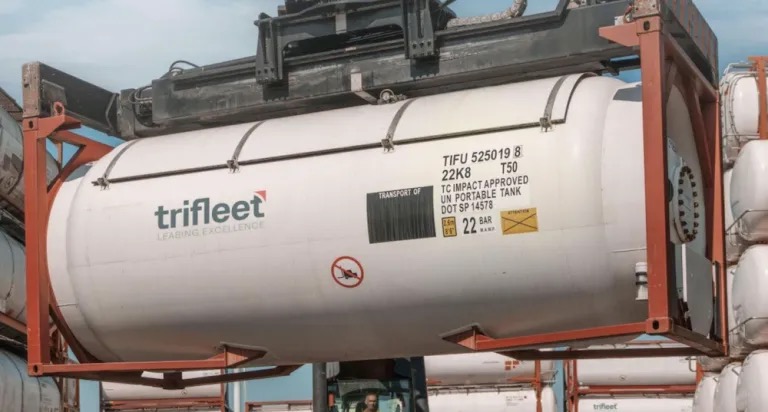In the dynamic logistics and production sector, the choice between leasing and purchasing equipment is crucial. Tank containers help to transport and store food, feed, gases and liquids safely and efficiently. To obtain tank containers, leasing is a very attractive option. This article will describe the benefits of leasing tank containers from companies such as Trifleet.
Tailored flexibility based on your transportation needs
The flexibility of leasing tank containers allows companies to adapt to changing needs without the burden of freehold ownership and loss of cash flow. While lease contracts typically run for several years and can take months to launch, they still have the advantage of adjusting to long-term changes in storage needs or market conditions. This approach allows businesses to scale up to extend temporary storage time or downsize to respond to changing needs, providing the necessary freedom to make strategic adjustments over time.
Cost-efficient use of the most advanced technology
Leasing enables you to adapt to developments in the market and new technologies. With leasing, you can use state-of-the-art equipment to improve operational efficiency and stay ahead of the competition without the upfront costs of updating their existing fleet. This ensures that your company maintains a competitive edge while reserving funds for other strategic investments and initiatives.
Ensure device availability
In terms of ensuring control over equipment availability, both leasing and purchasing private tank containers offer different guarantees than operating models. Whether businesses choose to lease or buy, the availability of equipment is guaranteed, giving businesses the confidence to effectively meet operational needs.
Ensure product quality through dedicated use
In terms of product quality control, both leasing and purchasing tank containers are superior to operating models. Whether companies choose to lease or buy, they gain dedicated advantages, ensuring consistency and reliability in the transportation of goods. This level of control enhances confidence in the integrity of shipped products and is a key factor in meeting customer expectations and regulatory standards.


